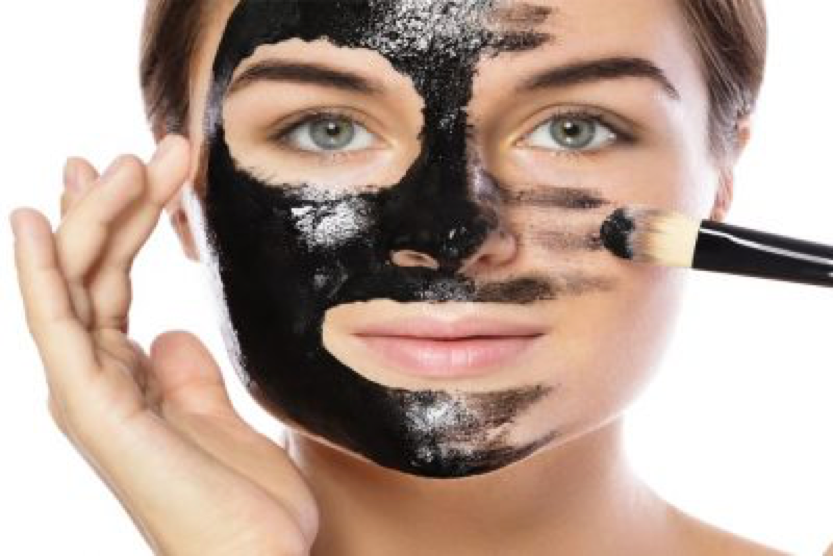Are Charcoal Masks Dangerous?

By: Aly Wing, Lifestyle Expert
In the past, charcoal was usually associated with grilling at a summer cookout or the disappointing gift you receive if you are put on Santa’s naughty list. Recently, however, the benefits of incorporating charcoal masks into your skin regimen make you wonder if receiving a lump of coal in your stocking might not be the most terrible present.
Activated charcoal is now being added to face masks, toothpastes, cleansers, and even juices for its ability to absorb toxins and pollutants. But is it safe to be rubbing this natural resource on your skin, and are there any side effects?
What Is Charcoal, Anyway?
Charcoal consists of carbon and remaining ash, obtained by separating water and other constituents from vegetation. Through the process of pyrolysis — the heating of wood in the absence of oxygen — a lightweight, black residue is formed.
Once ignited, the carbon in charcoal mixes with oxygen to form carbon dioxide, carbon monoxide, water, and other forms of energy. It contains more potential energy per ounce than raw wood. Charcoal burns steadily and creates less dangerous vapors while producing less smoke.
The process of creating charcoal dates as far back as 30,000 years. Traditionally, charcoal was not only used as a cooking and industrial fuel, but for its purifying and filtering properties. Activated charcoal absorbs a wide range of organic compounds when dissolved in liquids. In certain processes, like purifying sucrose from cane sugar, charcoal is used to remove the impurities that can cause an undesirable color.
Why Activated Charcoal Works
Activated charcoal, or the carbon in charcoal that has been treated to increase its absorbency, has been used in hospitals for years to treat poisoning and drug overdoses. By attaching to toxins in the stomach, activated charcoal is able to extract them before the bloodstream has a chance to absorb them. When incorporated into beauty products, the method is similar – the carbon attracts dirt and oil, absorbing them from the skin before your body has a chance to. When dirt and oil come into contact with activated charcoal, they are attracted to it like a magnet, stick to it, and are then washed away as you rinse the mask off.
Activated charcoal is not toxic, but you shouldn’t use it within two hours of taking vitamins or medications because it could bind to them, keeping your body from properly absorbing them.
Uses for Charcoal Masks
When it comes to skin care, there isn’t much you can think of that you’d want to stay on your face after cleansing at night. By using a good charcoal mask, you are giving your skin the chance to be cleansed deep down inside the pores. Charcoal is known to absorb up to 200 times its weight in impurities, making it a powerful ingredient to decontaminate and deeply clean the surface of your skin.
Your skin may feel a bit sensitive after you use a charcoal mask, because a thin layer of impurities may be stripped away. However, overall your skin should feel clean and smooth to the touch. The general consensus is that charcoal masks, unlike other face masks, do not leave red patches around the face and do not require moisturizer directly after.
Charcoal Mask Benefits
As mentioned above, charcoal masks can draw bacteria, dirt, poisons, chemicals, and other impurities from the skin. Through oxygenation, or the infusion of charcoal with oxygen, the mask creates a highly porous surface, which increases its ability to absorb toxins. This mask can leave your skin feeling clean and rejuvenated.
A Few Words of Caution
Although there is no imminent danger to using charcoal masks, please note that some people find the peel-off charcoal masks can be quite painful if left on too long. This particular type of face mask can actually pull off the protective barrier of the skin, leaving your skin exposed.
Don’t use charcoal face masks more than twice per week, as you don’t want to soak up the healthy oils and moisture your skin requires. Make sure you read the directions before use, and never leave a mask on longer than the suggested length of time.
Start with an exfoliating mask that can be washed off. This will exfoliate and rejuvenate your skin without the negative and painful side effects of a traditional peel-off mask. If you have sensitive skin, be sure to research all ingredients in the product, and speak to your dermatologist if you are unsure whether charcoal face masks are a safe option for your skin type.
